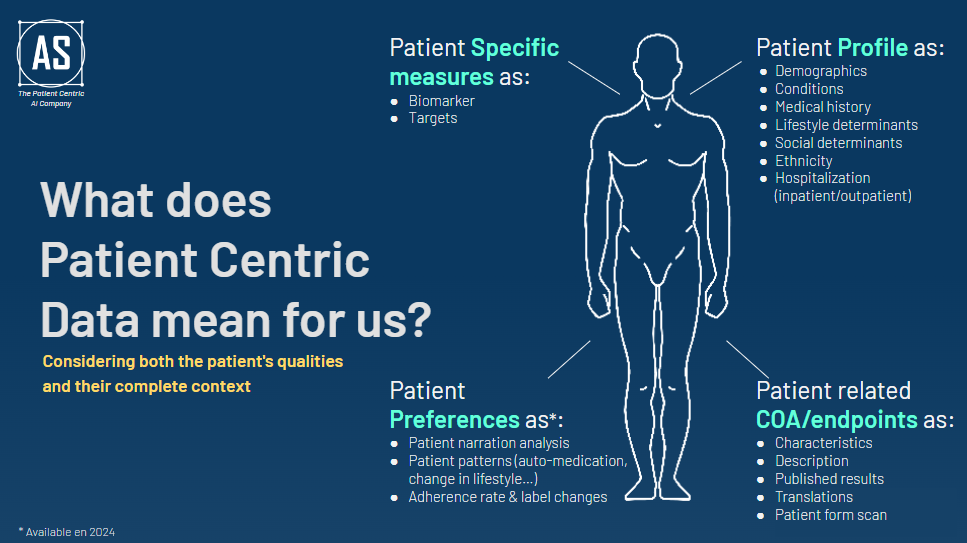
Patients First in Drug Development with Artificial Intelligence
Julien Dufour - 30th, January 2024
Why does "patients first" in drug development strategy assisted by artificial intelligence is critical ?
As we all know, drug access is directly linked to the cost of drug developement that is estimated at $1.3 trillion per year on drug development with only 19% of drugs that enter clinical trials are ultimately approved by the FDA. A month ago, Paul Hudson, CEO of Sanofi, even argued that the cost to develop a new drug has now reached new records : $3 billion.
One of the most significant ways AI can benefit patients is by placing them at the forefront of the drug development process. AI empowers the collection and analysis of patient data in ways previously unattainable. This data can be harnessed to discover novel drugs and design medications that enhance patient quality of life and ensure the secure and efficient utilization of these treatments.
For example, AI can be used to analyze patient genomes to identify genetic mutations that are associated with disease. This information can then be used to develop targeted therapies that are more likely to be effective for patients with specific genetic profiles.
AI can also be used to personalize drug treatment for individual patients. This can be done by taking into account factors such as patient age, weight, and other medical conditions. Personalizing drug treatment can help to improve patient outcomes and reduce the risk of side effects.
In addition to improving the efficiency and effectiveness of drug development, AI can also help to reduce the cost of new drugs. This is because AI can be used to automate tasks that are currently performed by human researchers.
Overall, AI has the potential to revolutionize drug development by putting patients first. By collecting and analyzing patient data in new ways, AI can help to identify new drug targets, design more effective and safer drugs, and personalize drug treatment for individual patients. This can lead to improved patient outcomes and reduced healthcare costs.
For drug designers, AI can provide a number of specific benefits,
In recent years, there has been a growing trend of investment in the sector. This has led to a more dynamic market and the emergence of new approaches and solutions. These solutions generally aim to provide the following benefits to drug designers:
- Improved efficiency by automating many of the time-consuming and repetitive tasks involved in drug design, such as data analysis and compound screening. This can free up drug designers to focus on more creative and strategic work
- Increased accuracy by identifying patterns and trends in data that would be difficult or impossible for humans to see. This can lead to more accurate predictions of the efficacy and safety of potential drug candidates
- Personalized medicine by personalizing drug treatment for individual patients. This can help to improve patient outcomes and reduce the risk of side effects.
In conclusion,
Putting the patient at the center of drug design is a source of complication, or even an impossible task, for professionals. This is because of the large amounts of unstructured data, the diversity of cases, and the difficulty of engaging patients and practitioners. However, the potential benefits are incredible, both for the profitability of businesses and for the acceleration of access to care and overall health. This makes it a particularly fertile ground for the exploitation of AI capabilities. This is the focus of our investments, our products, and the reason for our teams' existence on a daily basis.
WHY ARCASCIENCE IS UNIQUE ?
ArcaScience is the unique company providing comprehensive Patient Centric data to generate accurate prediction throughout the drug life cycle by using Artificial Intelligence to consolidate original patient-centric datasets helping Healthcare innovators to predict drug efficiency

SINCE 2018, THEY TRUST US:



